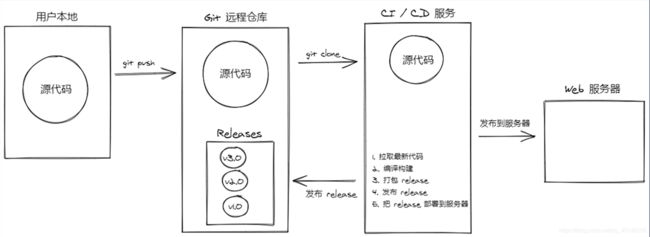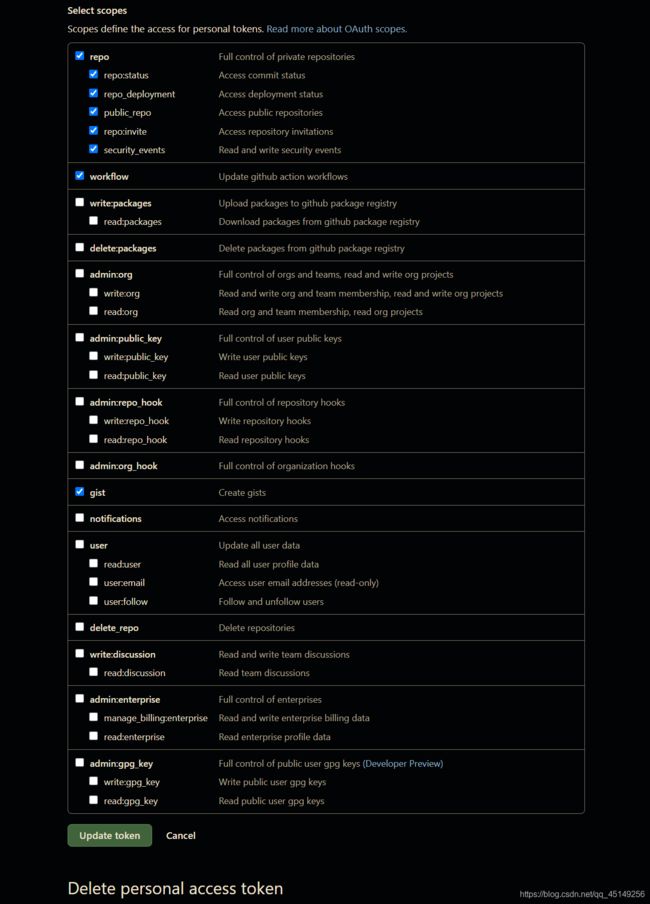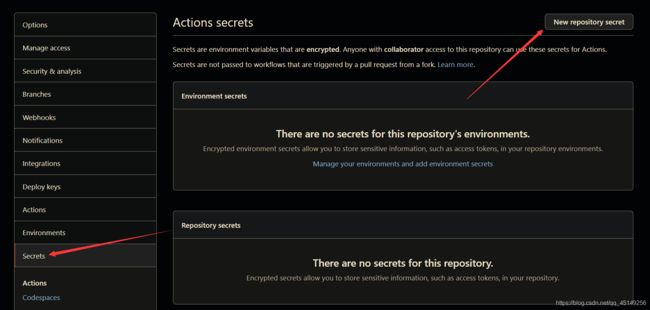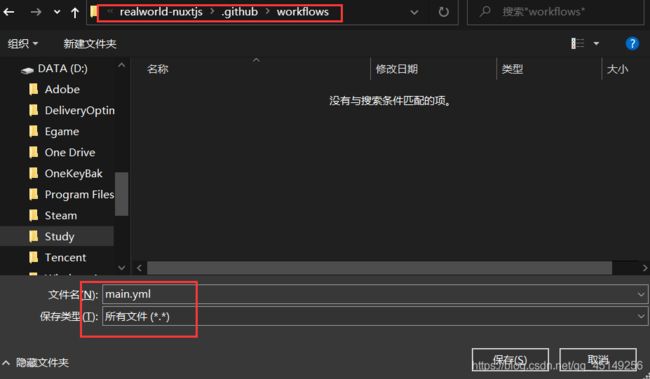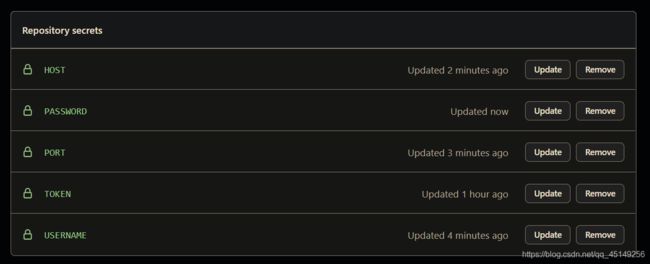Vue.js 框架源码与进阶 - NuxtJS案例 - Realworld项目 - 文章/发布部署
NuxtJS案例 - Realworld项目 - 文章/发布部署
- 11.5 文章详情
-
- 展示基本信息
- 把Markdown转为HTML
- 展示文章作者相关信息
- 设置页面meta优化SEO
- 文章评论-通过客户端渲染展示评论列表
- 11.6 发布部署
-
- 打包
- 最简单的部署方式
- 使用PM2启动Node服务
- 自动化部署介绍
- GitHub Actions 自动部署
11.5 文章详情
展示基本信息
请求方法:GET
请求地址:/api/articles/:slug
api/article.js
// 获取文章详情
export const getArticle = slug => {
return request({
method: 'GET',
url: `/api/articles/${slug}`
})
}
pages/article/index.vue
import { getArticles } from '@/api/article'
export default {
name: 'ArticleIndex',
async asyncData ({ params }) {
const { data } = await getArticles(params.slug)
console.log(data)
}
}
export default {
name: 'ArticleIndex',
async asyncData ({ params }) {
const { data } = await getArticles(params.slug)
return {
article: data.article
}
}
}
<h1>{{ article.title }}</h1>
...
<div class="row article-content">
<div class="col-md-12">{{ article.body }}</div>
</div>
把Markdown转为HTML
markdown-it:将Markdown文档转换为Html
npm install markdown-it --save
在文章的详情页面加载包pages/article/index.vue
import MarkdownIt from 'markdown-it'
export default {
name: 'ArticleIndex',
async asyncData ({ params }) {
const { data } = await getArticle(params.slug)
const { article } = data
const md = new MarkdownIt
article.body = md.render(article.body)
return {
article: article
}
}
}
<div class="row article-content">
<div class="col-md-12" v-html="article.body"></div>
</div>
展示文章作者相关信息
效果图:
模板:
<div class="article-meta">
<a href=""><img src="http://i.imgur.com/Qr71crq.jpg" /></a>
<div class="info">
<a href="" class="author">Eric Simons</a>
<span class="date">January 20th</span>
</div>
<button class="btn btn-sm btn-outline-secondary">
<i class="ion-plus-round"></i>
Follow Eric Simons <span class="counter">(10)</span>
</button>
<button class="btn btn-sm btn-outline-primary">
<i class="ion-heart"></i>
Favorite Post <span class="counter">(29)</span>
</button>
</div>
我们可以把它们封装为组件以便我们的重用:pages/article/components/article-meta.vue
<template>
插入模板...
</template>
export default {
name: 'ArticleMeta'
}
注册组件:pages/article/index.vue
import ArticleMeta from './components/article-meta.vue'
export default {
...
components: {
ArticleMeta
}
}
加载组件:
<article-meta />
数据展示:
<article-meta :article="article" />
子组件声明接收:pages/article/components/article-meta.vue
export default {
name: 'ArticleMeta',
props: {
article: Object,
required: true // 必须的
}
}
<template>
<div class="article-meta">
<nuxt-link :to="{
name: 'profile',
params: {
username: article.author.username
}
}">
<img :src="article.author.image" />
</nuxt-link>
<div class="info">
<nuxt-link class="author" :to="{
name: 'profile',
params: {
username: article.author.username
}
}">
{{ article.author.username }}
</nuxt-link>
<span class="date">{{ article.createdAt | date('MMMM DD, YYYY') }}</span>
</div>
<!-- 用户关注状态 -->
<button
class="btn btn-sm btn-outline-secondary"
:class="{
active: article.author.following
}"
>
<i class="ion-plus-round"></i>
Follow Eric Simons <span class="counter">(10)</span>
</button>
<!-- 用户是否已点赞 -->
<button
class="btn btn-sm btn-outline-primary"
:class="{
active: article.favorited
}"
>
<i class="ion-heart"></i>
Favorite Post <span class="counter">(29)</span>
</button>
</div>
</template>
设置页面meta优化SEO
除了根据正文内容来处理SEO,页面的标题以及跟meta标签相关的内容对于收录同样非常重要:
NuxtJS相关文档:
Nuxt.js 使用了 vue-meta 更新应用的
头部标签(Head)andhtml 属性。
Nuxt.js 允许你在 nuxt.config.js 里定义应用所需的所有默认 meta 标签,在 head 字段里配置就可以了。
如果我们有针对某个特定的页面来定制:页面头部配置API
pages/article/index.vue
export default {
...
head() {
return {
title: `${this.article.title} - RealWorld`,
meta: [
{
hid: 'description',
name: 'description',
content: this.article.description
}
]
}
}
}
注意:为了避免子组件中的 meta 标签不能正确覆盖父组件中相同的标签而产生重复的现象,建议利用 hid 键为 meta 标签配一个唯一的标识编号。
文章评论-通过客户端渲染展示评论列表
将评论列表封装为组件:pages/article/components/article-comments.vue
<template>
<div>
<form class="card comment-form">
<div class="card-block">
<textarea class="form-control" placeholder="Write a comment..." rows="3"></textarea>
</div>
<div class="card-footer">
<img src="http://i.imgur.com/Qr71crq.jpg" class="comment-author-img" />
<button class="btn btn-sm btn-primary">
Post Comment
</button>
</div>
</form>
<div class="card">
<div class="card-block">
<p class="card-text">With supporting text below as a natural lead-in to additional content.</p>
</div>
<div class="card-footer">
<a href="" class="comment-author">
<img src="http://i.imgur.com/Qr71crq.jpg" class="comment-author-img" />
</a>
<a href="" class="comment-author">Jacob Schmidt</a>
<span class="date-posted">Dec 29th</span>
</div>
</div>
<div class="card">
<div class="card-block">
<p class="card-text">With supporting text below as a natural lead-in to additional content.</p>
</div>
<div class="card-footer">
<a href="" class="comment-author">
<img src="http://i.imgur.com/Qr71crq.jpg" class="comment-author-img" />
</a>
<a href="" class="comment-author">Jacob Schmidt</a>
<span class="date-posted">Dec 29th</span>
<span class="mod-options">
<i class="ion-edit"></i>
<i class="ion-trash-a"></i>
</span>
</div>
</div>
</div>
</template>
export default {
name: 'ArticleComments'
}
加载注册组件:pages/article/index.vue
<article-comments />
import ArticleComments from './components/article-comments.vue'
components: {
...
ArticleComments
}
请求方法:GET
请求地址:/api/articles/:slug/comments
api/article.js
// 获取文章评论
export const getComments = slug => {
return request({
method: 'GET',
url: `/api/articles/${slug}/comments`
})
}
加载请求方法:pages/article/components/article-comments.vue
import { getComments } from '@/api/article'
在父组件传递文章对象给子组件:pages/article/index.vue
<article-comments :article="article" />
评论并不需要SEO:pages/article/components/article-comments.vue
export default {
name: 'ArticleComments',
props: {
article: {
type: Object,
required: true // 必须的
}
},
data () {
return {
comments: [] // 文章列表
}
},
// 评论不需要SEO
// 客户端加载
async mounted () {
const { data } = await getComments(this.article.slug)
this.comments = data.comments
}
}
遍历数据:
<div
class="card"
v-for="comment in comments"
:key="comment.id"
>
<div class="card-block">
<p class="card-text">{{ comment.body }}</p>
</div>
<div class="card-footer">
<nuxt-link
class="comment-author"
:to="{
name: 'profile',
params: {
username: comment.author.username
}
}"
>
<img :src="comment.author.image" class="comment-author-img" />
</nuxt-link>
<nuxt-link
class="comment-author"
:to="{
name: 'profile',
params: {
username: comment.author.username
}
}"
>
{{ comment.author.username }}
</nuxt-link>
<span class="date-posted">{{ comment.createdAt | date('MMMM DD, YYYY')}}</span>
</div>
</div>
11.6 发布部署
打包
- https://www.nuxtjs.cn/guide/commands
| 命令 | 描述 |
|---|---|
| nuxt | 启动一个热加载的 Web 服务器(开发模式) localhost:3000。 |
| nuxt build | 利用 webpack 编译应用,压缩 JS 和 CSS 资源(发布用)。 |
| nuxt start | 以生产模式启动一个 Web 服务器 (需要先执行nuxt build)。 |
| nuxt generate | 编译应用,并依据路由配置生成对应的 HTML 文件 (用于静态站点的部署)。 |
package.json:
{
"scripts": {
"dev": "nuxt",
"build": "nuxt build",
"start": "nuxt start"
}
}
npm run build
生成结果:.nuxt以及.nuxt/dist
npm run start
最简单的部署方式
- 配置 Host + Post
nuxt.config.js:
server: {
host: '0.0.0.0', // 默认localhost
port: 3000
}
-
压缩发布包
.nuxt:Nuxt打包生成的资源文件static:项目静态资源nuxt.config.js:提供给Nuxt服务package.json:用于服务端第三方包的安装package-lock.json:用于服务端第三方包的安装
-
把发布包传到服务端
得到realworld-nuxtjs.zip传递到服务端
ssh [email protected]
mkdir realworld-nuxtjs
cd realworld-nuxtjs/
pwd
复制路径path并exit退出服务
scp .\realworld-nuxtjs.zip [email protected]:path
- 解压
ssh [email protected]
cd realworld-nuxtjs/
unzip realworld-nuxtjs.zip
ls -a
- 安装依赖
npm i
- 启动服务
npm run start
使用PM2启动Node服务
PM2 是什么?
刚才我们在服务端是直接通过npm run start命令来启动了Web服务,如果我们通过这种方式启动起来以后,此时占用了命令行。我们希望它在后台运行这个应用,因此就需要用到pm2工具:
使用 PM2 启动服务
- GitHub 仓库地址:https://github.com/Unitech/pm2
- 官方文档:https://pm2.io/
- 安装:
npm install --global pm2 - 启动:
pm2 start 脚本路径
# 没有node环境的话
# wget -qO- https://getpm2.com/install.sh | bash
npm install --global pm2
pm2 start npm -- start
PM2 常用命令
| 命令 | 说明 |
|---|---|
| pm2 list | 查看应用列表 |
| pm2 start | 启动应用 |
| pm2 stop | 停止应用 |
| pm2 reload | 重载应用 |
| pm2 restart | 重启应用 |
| pm2 delete | 删除应用 |
自动化部署介绍
传统的部署方式需要反复地更新、构建、发布,显得很麻烦。我们希望这件事情能够自动化,即使用现代化的部署方式(CI/CD)
CI/CD 服务
- Jenkins
- Gitlab CI
- GitHub Actions
- Travis CI
- Circle CI
- …
GitHub Actions 自动部署
这里我们使用 GitHub Actions 实现自动部署:
环境准备
- Linux 服务器
- 把代码提交到 GitHub 远程仓库
配置 GitHub Access Token
- 生成:https://github.com/settings/tokens
- 配置到项目的 Secrets 中:https://github.com/shiguanghai/realworld-nuxtjs/settings/secrets
配置 GitHub Actions 执行脚本
- 在项目根目录创建
.github/workflows目录 - 下载 main.yml 到 workflows 目录中
- 修改配置
# 打包构建
- run: tar -zcvf release.tgz .nuxt static nuxt.config.js package.json package-lock.json pm2.config.json
...
pm2 reload pm2.config.json
- 配置 PM2 配置文件
pm2.config.json
{
"apps": [
{
"name": "RealWorld",
"script": "npm",
"args": "start"
}
]
}
- 提交更新
git add .
git commit -m "发布部署-测试"
git tag v0.1.0
git push origin v0.1.0
- 查看自动部署状态
- 访问网络
- 提交更新
项目仓库地址:https://github.com/shiguanghai/realworld-nuxtjs
项目展示地址:http://demo.shiguanghai.top:3000










